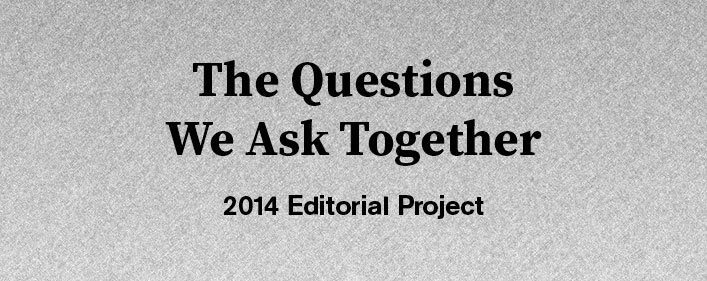How do you understand your privilege and how does that affect the work you are doing in specific communities?
Two questions here, related of course, but I’ll address them one at a time.
“How do you understand your privilege?”
I do not understand my privilege entirely, but each day that brings me new understanding of my various privileges is incredibly painful but joyful at the same time. Painful, because I need to face the fact that yet again I have internalized every white supremacist, sexist, heterosexist, ableist, classist, nationalist way of seeing the world that my society has come up with. Joyful, because the act of breaking through these twisted constructs brings with it that particular pleasure of discovery and seeing the world clearly. This combination of pain and joy is itself a kind of privilege, as the kind of knowledge I refer to is knowledge that members of oppressed groups have always had; it’s knowledge born out of personal experience.
I come to understand my privilege through several routes: reading about it, talking with people about it, reflecting on my own life and experience, making artwork about it, and paying attention. The ruling class’s worldview benefits groups in society in different ways, whether they are aware of it or not. Members of privileged groups experience their world as normal, natural, ideal, inevitable, perpetual, and beneficial for everyone. This is why it is so difficult for privileged people to even see or understand privilege: we’ve been told our entire lives that our world is the world, our experience is just “experience.” This becomes clearer when we think about how “the Black experience” is a phrase that is used regularly, but “the white experience” sounds strange. White experience is simply, experience. White people are simply, people. This is a big problem.
I am particularly interested in white privilege. For many years, even as I considered myself “anti-racist,” I still did not take the time to understand myself as a racialized person. I did not really see myself as a member of the white race, connected directly to the history of colonization and white settlement of North America, and continuing to as benefit from the system of white supremacy. But after many years of reading groups and consciousness-raising, I finally experienced a snap. I felt really white, and it was not a good feeling, but I was glad to feel it. My 2013 video, White Lady Diaries, included here, explores some of this experience of whiteness and my personal relationship to it.
“How does that affect the work you are doing in specific communities?”
The truth is that “specific communities” affect the work I am doing, and these specific communities affect my understanding of privilege. The specific communities I’ve worked with over the past several years include Portland, Oregon’s community of people working on police brutality issues, prison issues, and state repression. This brings me in to contact with some people who are a lot like me, and with others whose experiences differ drastically from my own. I have met geniuses in these specific communities who teach me far more than I could ever hope to give them.
White Lady Diaries (video, 5 minutes, 2013)
About the contributor: Julie Perini is a white, middle-class, straight, educated, able-bodied lady living in Portland, Oregon. She creates experimental and documentary videos, films, and installations. In collaboration with Jodi Darby and Erin Yanke, she is creating Safe & Sound?, a video/web project about Portland’s unique history of policing and its rich history of resistance. Originally from Poughkeepsie, NY, Julie has been exploring her immediate surroundings with cameras since age 15 when she discovered a VHS camcorder in her parent’s suburban home. Her work often explores the areas between fact and fiction, staged and improvised, personal and political. Her writing has been published by A.K. Press, Incite! The Journal of Experimental Media and Afterimage: The Journal of Media Arts & Culture. She is on the Board of Directors for Signal Fire, an organization that facilitiates opportunities for artists to engage with the natural world. Her media production skills are largely self-taught, although after spending several years in the 1990s editing VHS tapes using two VCRs, she learned analog video production at PEGASYS Public Access TV in Ithaca, NY. She holds an MFA from the University at Buffalo’s Department of Media Study and a BS from Cornell University. Perini is an Assistant Professor of Art at Portland State University.
